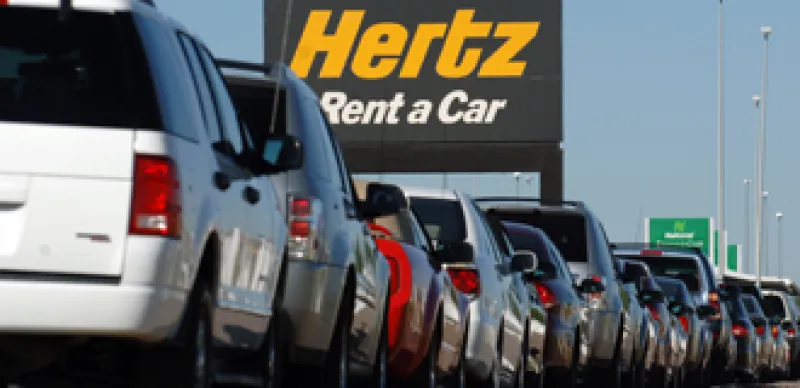
A row of rental cars are parked below a sign for Hertz Corp. at Denver International Airport Monday September 12, 2005. Ford Motor Co. may sell Hertz Corp., the largest U.S. car-rental company, to buyout investors including Clayton, Dubilier & Rice Inc. and Carlyle Group for about $15 billion to raise cash for its unprofitable North American auto business, people familiar with the matter said. Photographer: Matthew Staver/Bloomberg News
Matthew Staver/Bloomberg News

